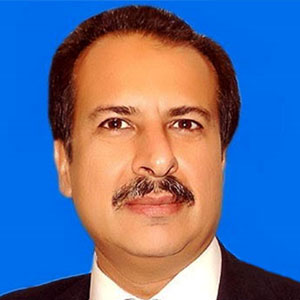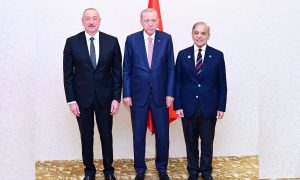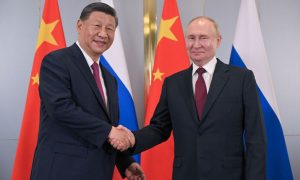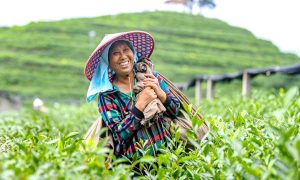Human security is a concept that challenges the traditional notion of national security by placing the ‘human’ as the central referent of security instead of the ‘state.’ It is a concept that encompasses health and well-being of people and prioritizes their fundamental freedoms and basic livelihoods by shielding them from acute socioeconomic threats, vulnerabilities and stress.
The epicenter of “health security” is located at the intersection of several academic fields or disciplines which do not necessarily share a common theoretical approach.
Diverse players in the “health security” domain include practitioners in such fields as security studies, foreign policy, international relations, development theory, environmental politics and the practices of the United Nations system and other multilateral bodies like the World Health Organization (WHO) and the Pan American Health Organization (PAHO).
Improvements in health are not only dependent on continued commitments to enhance the availability of healthcare and to strengthen disease prevention systems; they are very much enhanced by that intersection between global security and global health.

What is emerging is global health diplomacy paradigm that calls for strengthening of core capacities in the public health and foreign policy arenas aimed at advancing human security through the strengthening of global health diplomacy practices. Human security in its broadest sense embraces far more than the absence of violence and conflict.
It encompasses human rights, good governance, access to education and health care, and ensuring that each individual has opportunities and devices to fulfill his or her potential. Every step in this direction is a step towards reducing poverty, achieving growth and preventing conflict. Freedom from want, freedom from fear and the freedom of future generations to inherit a natural environment – these are the interrelated building blocks of human- and therefore national security.
The concept of Human Security puts the security of human lives at the center of the national security policy framework; an interdisciplinary philosophy that is people-centric, multisectoral, context-specific and often less emphasized.
Health Security & Diplomacy
Human security complements state security, strengthens human development, and enhances human rights, thereby contributing to sustainable development and steering the sustainable development goals (SDGs).
According to the Commission on Human Security, the concept aims “to protect the vital core of all human lives in ways that enhance human freedoms and human fulfilment.”
The concept was first voiced by the United Nations Development Programme (UNDP) in 1994 in its Human Development Report and then cascaded from the global to the state-society complex.
This led to the adoption by all UN members in 2015 of the SDGs – aimed at eradicating poverty in all its forms and leaving no one behind by 2023 –

Access to Health Care
There are seven areas where threats to human security exist: economic, food, health, environment, personal, community, and political.
According to UNDP, there are three pillars of human security:
- Freedom from want—fulfilling basic human needs in economic, health, food, social, and environmental areas.
The UNDP Commission focused on fair trade, access to health care, patent rights, access to education, and basic freedoms.
- Freedom from fear—eliminating the use of force or violence from people’s lives, e.g., policy initiatives like international action to deal with the proliferation of small arms and light weapons, and the establishment of the International Criminal Court (ICC).
- Freedom of future generations to inherit a healthy environment.
The core objective is to protect people from critical and pervasive threats and risks.
Health diplomacy
Ensuring human security, including the health of people, is one of the cornerstones of any nation’s security. This calls for multisectoral engagement beyond the health sector, where “health diplomacy” can chip in.
Health security aims to avert threats like the emerging and re-emerging epidemics and pandemics, non-communicable diseases (NCDs), bioterrorism, and the growing threat of antimicrobial resistance.
Pandemics do not respect borders, and there is a need to address newly emerging and re-emerging transborder challenges that can undermine global stability. Health-related security threats, therefore, may better engage foreign offices. Although health diplomacy is still in the embryonic stage, it has cast its shadow amidst the COVID-19 pandemic, more efforts are needed to entrench health firmly in national foreign policy.
In an era of accelerated economic globalization driven by complex trade and investment agreements, health and foreign policy domains need to craft harmony for negotiated positive health outcomes in the face of other competing interests.

Health diplomacy
Globalization, donor-recipient relationships, and the changing landscape of South-South alliances have opened new vistas for health diplomacy.
Health diplomacy offers an opportunity for a symbiotic interaction of stakeholders engaged at the cross-section of public health and politics to improve health systems and secure the right to health of vulnerable populations.
Goals of Health Diplomacy
The main goals of health diplomacy are 1) to ensure better health security and population health; 2) to leverage inter-state relationships; 3) to improve health through the involvement of a wide range of non-health actors, and support the Goals of reducing poverty, increasing equity, thereby contributing to the SDG goals.
Investing in and improving health diplomacy will advance economic development, social justice, and national security as explained below;
- Non-communicable Diseases: NCDs are the leading cause of mortality and they result in creating an enormous burden on a country’s economy.
It is projected that NCDs will cost low- and middle-income countries up to US$7 trillion in economic losses between 2011 and 2025.
Health diplomacy can unite policymakers in addressing the issue globally, e.g., the United Nations Political Declaration on NCDs, regional and national treaties.
Health conditions
- Social justice: The right to health is a matter of social justice, when the population is affected by the crisis, the right to health is compromised, and people lose access to health facilities, essential medicines, shelter, safe water and sanitation, thereby resulting in the spread of more diseases and deterioration in health conditions. Here health diplomacy plays a vital role in a win-win.
- Conflicts: The conflicts in Eastern Mediterranean Region, Africa, and South Asia (e.g., Yemen, Somalia, Syria, and Ukraine)) might push back measles elimination, Polio Eradication, COVID-19 control targets. This can also dent the health system in toto, costing huge health and economic cost.
Due to civil unrest, conflicts, and natural disasters the delivery of essential health services either fail or become compromised due to mass migration.
Health diplomacy opens corridors for humanitarian assistance and this vantage point can be utilised as a bridge for global well-being and peace.
- National security: When diseases cross borders, national security is threatened. Infectious diseases do not carry national passports. Disease outbreaks know no borders and trans-border movements increase the risk of infectious diseases, e.g., COVID-19, Ebola, SARS, H1N1, Polio, Zika virus etc.
National Security and health diplomacy intersect wars and conflicts, natural and humanmade disasters, transborder spread of infectious diseases, biological threats, and the escalating threat of antimicrobial resistance.
All that emphasizes the pivotal role that health diplomacy can play in the advancement of health and human security.
There is a palpable synergy between human security and health diplomacy as both attempt to protect human lives and ensure human rights and national dignity.
Global health diplomacy – which bridges the domain of health and international relations – plays a crucial role in advancing national security.
Health diplomacy enables “policy coherence” through the determinants of health and human security to ensure that health is well-positioned as a global public good.
Considering the linkages between health, inequity and other root causes of insecurity, the government should explore avenues for making human security a cross-cutting theme in the national health policies.
Engaging foreign office optimally in the national health security policy dialogue could be the 1st step in the right direction. Let’s take a start























